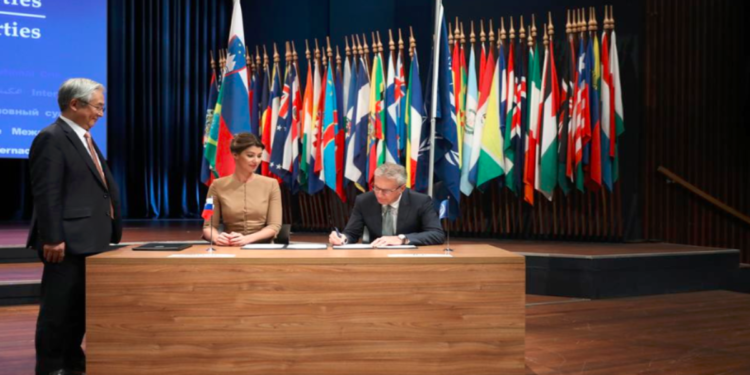By Thomas Verfuss
The obligation to execute ICC arrest warrants and to cooperate with the court’s investigations is much talked about. But – next to cooperation with the court that is compulsory for states – there are also forms of voluntary cooperation by states. During the Assembly of States Parties, ICC vice president Robert Fremr stressed: “Voluntary cooperation is sometimes overlooked – but crucial to the functioning of the court.”
The Netherlands accept the presence of ICC suspects while proceedings are ongoing. Once the indicted person has been finally convicted at the appeals stage, the court’s registry must look for a country that is prepared to offer a cell where the convict can serve his sentence. No state is obliged to do so – it is a form of voluntary cooperation. The ICC must endeavor to find enough states that are prepared to fulfill this role. To mark the importance of this form of voluntary cooperation, Slovenia signed an agreement to this effect during the ASP session.
On the other hand, the court also needs voluntary cooperation when a (former) suspect is to be set free. The International Criminal Tribunal for Rwanda had a problem with genocide suspects that had been acquitted, but had nowhere to go. They could live for years in semi-liberty in the legal limbo of “safe houses” in Arusha (Tanzania), the seat of the court.
Finally the court seeks voluntary agreements on “interim release” for suspects whose proceedings are ongoing and who, according to the judges, don’t have to be in custody as there is no flight risk and no risk of intimidation of witnesses.
Last but not least the court seeks to conclude voluntary witness protection agreements with states. Intimidation of witnesses is a major problem for the ICC – according to the Office of the Prosecutor, that is what made its Kenya cases collapse. One way to tackle this problem is relocation of witnesses in another country, possibly with a new identity. A high court official has told Journalists For Justice that the lack of possibilities of witness relocation is the “most important bootleneck” for the functioning of the court.
Argentina is the only country that has signed all four voluntary cooperation agreements: enforcement of sentences, interim release, final release and witness relocation. According to registrar Peter Lewis only a ,,small number of states have provided these important building blocks” of the Rome Statute system. Exact figures were not given – some states have asked the ICC to be ,,discrete about the existence of relocation agreements’’.
Four forms of agreements about voluntary cooperation with the Court:
| Agreement | Lists of states |
| Enforcement of sentences of definitely convicted persons | 11 agreements: Argentina |
| Austria | |
| Belgium | |
| Denmark | |
| Finland | |
| Mali | |
| Norway | |
| Serbia | |
| Slovenia | |
| United Kingdom of Great Britain and Northern Ireland | |
| Agreement | List of States |
| Interim release during ongoing proceedings | 2 agreements: Belgium |
| Argentina | |
| Agreement | List of states |
| Accepting acquitted persons on the state’s territory | Argentina |
| Agreement | Lists of states |
| Witness relocation | 21 agreements: Name of countries are confidential |







